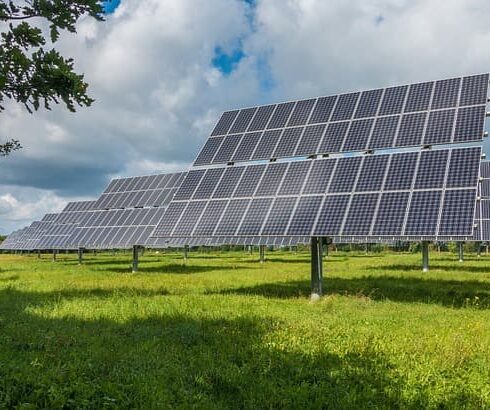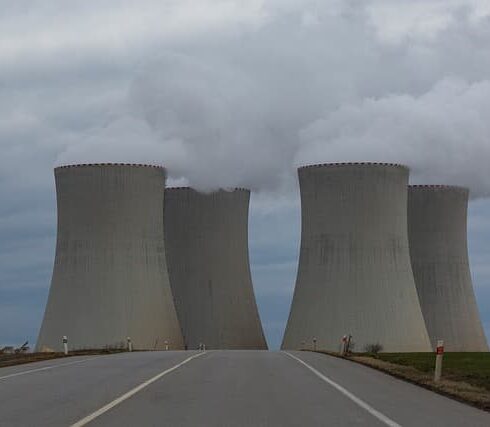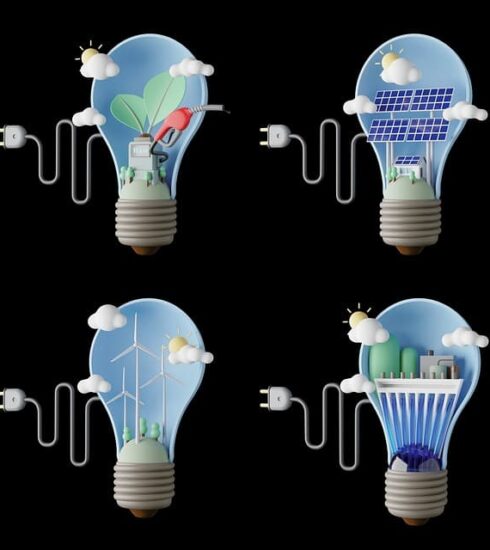The Role of Artificial Intelligence in Optimising Renewable Energy Systems
In the era of technological revolution, Artificial Intelligence (AI) stands out as a beacon of innovation and efficiency. AI’s influence extends across various sectors, revolutionising traditional processes and opening new frontiers of possibilities. Its applications range from healthcare and finance to entertainment and, most critically, renewable energy systems. This article explores AI’s transformative role in optimising renewable energy, a sector pivotal to our sustainable future.
The Universal Impact of AI: A Cross-Industry Revolution
AI’s emergence as a versatile tool has redefined the operational landscapes of multiple industries:
- Healthcare
- Finance
- Retail
- Manufacturing
- Transportation and logistics
- Technology and communications
- Entertainment and media
- Education
- Agriculture
- Energy and utilities
- Real estate
Its capacity to process and analyse vast amounts of data has revolutionised sectors like healthcare, where AI assists in disease diagnosis and treatment planning. AI’s application in imaging and genomics is significantly advancing personalised medicine. In finance, AI-driven algorithms improve fraud detection and enhance customer service by automating tasks and providing insights for investment strategies. AI’s ability to identify patterns in financial data also aids in predicting market trends, further optimising financial planning and risk management.
AI’s Influence on Online Casinos and Renewable Energy
The kingdom of online entertainment, particularly in online casinos, also witnesses AI’s profound impact. Here, AI plays a crucial role in creating personalised gambling experiences and enhancing user engagement. For instance, in the UK’s online casino scene, platforms offering free spins no deposit casino UK may leverage AI to tailor these promotions by offering bonuses of different values and specific games based on player habits. This application of AI in online casinos underscores its potential in managing complex systems – a quality essential in the intricate world of renewable energy.
Moreover, AI’s role in these casinos extends to responsible gaming initiatives, where it helps monitor and prevent problematic gambling behaviours. This aspect of AI, focused on ethical and responsible usage, resonates deeply with the ethos of renewable energy sectors. Just as AI is employed to ensure fair and secure gaming experiences in renewable energy, it’s used to promote sustainable and efficient energy utilisation.
AI’s transformative power is evident in every sector, from healthcare to agriculture. However, its application in renewable energy stands as a testament to its potential in addressing some of the most pressing challenges of our times. The technology not only enhances operational efficiency but also contributes significantly to the global effort to combat climate change.
How AI Optimises Renewable Energy Systems
Integrating AI into renewable energy systems marks a significant leap toward sustainability and efficiency. Renewable energy sources like solar, wind, and hydro are inherently variable and somewhat unpredictable — AI steps in to address these challenges. AI’s role in renewable energy is pivotal, profoundly impacting several key areas:
- Predictive maintenance in wind turbines
- Solar energy optimisation
- Smart grid management
- Energy demand forecasting
- Optimisation of hydropower
- Renewable energy resource assessment
- Battery storage optimisation
- Lifecycle management of renewable assets
- Integration of distributed energy resources
Predictive Maintenance in Wind Turbines
AI algorithms are revolutionising how we maintain wind turbines. These algorithms can accurately predict potential failures by analysing data from sensors on turbines, facilitating proactive maintenance. This not only reduces maintenance costs but also maximises turbine availability and efficiency. The implications are significant; fewer unexpected downtimes and longer lifespans for turbines mean more consistent and reliable wind energy production.
Solar Energy Optimisation
In solar energy, AI’s contribution is equally transformative. AI models are adept at predicting solar irradiance – the amount of sunlight reaching the earth’s surface. By accurately forecasting sunlight availability, these models enable smarter, more adaptive management of solar panels. This optimisation ensures that solar panels operate at peak efficiency throughout varying weather conditions, significantly boosting overall energy production. The result is a more robust and dependable solar energy network, crucial in the global shift towards renewable sources.
Smart Grid Management
One of AI’s most critical applications in renewable energy is smart grid management. AI’s ability to analyse and predict energy supply and demand patterns is pivotal in effectively integrating renewable energy sources into the power grid. Given the intermittent nature of renewable sources like wind and solar, this integration is far from straightforward. AI helps manage these complexities, ensuring energy distribution is balanced, efficient, and responsive to changing conditions. By doing so, AI enhances grid stability and plays a vital role in maximising the use of renewable energy and reducing reliance on fossil fuels.
Energy Demand Forecasting
AI algorithms are exceptionally skilled at predicting energy demand patterns. AI can accurately forecast energy requirements by analysing historical data and considering variables like weather, time of day, and economic activity. This forecasting is crucial for balancing the load on the grid, especially in systems with a high proportion of renewable energy sources.
Optimisation of Hydropower
AI can be used to optimise the operation of hydropower plants. By analysing river flow data, weather forecasts, and energy demand, AI algorithms can determine the most efficient times to store and release water, maximising energy production while minimising environmental impact.
Renewable Energy Resource Assessment
AI helps assess potential sites for renewable energy projects, such as wind or solar farms. By processing data from satellite imagery, weather patterns, and geographical information, AI can identify optimal locations for new installations, enhancing the overall efficiency of renewable energy expansion.
Battery Storage Optimisation
As battery storage becomes more integral to renewable energy systems, AI’s role in optimising charge and discharge cycles becomes crucial. AI can manage the storage of surplus energy and its release during peak demand periods, maximising the utility of renewable energy and reducing dependence on non-renewable sources.
Lifecycle Management of Renewable Assets
AI aids in the entire lifecycle management of renewable energy assets, from design and construction to decommissioning. It can predict when components need to be replaced or upgraded, ensuring that renewable energy systems operate at peak efficiency throughout their lifespan.
Integration of Distributed Energy Resources
AI plays a vital role in integrating distributed energy resources (DERs), such as residential solar panels or small wind turbines, into the larger grid. AI helps balance and manage these diverse energy inputs, ensuring stable grid operation.
These AI applications elevate the efficiency and reliability of renewable energy systems and are fundamental in reducing the global carbon footprint. AI is at the forefront of environmental conservation efforts by enabling more effective and sustainable energy solutions, proving essential in the fight against climate change. Here’s a summary table outlining the applications of AI in various aspects of renewable energy and how AI is utilised in each area:
| Application | AI’s Use |
| Predictive Maintenance in Wind Turbines | Analysing sensor data to predict turbine failures for proactive maintenance, reducing costs and downtime. |
| Solar Energy Optimisation | Predicting solar irradiance for adaptive solar panel management, boosting energy production. |
| Smart Grid Management | Analysing and predicting energy supply and demand for effective renewable energy integration into the power grid. |
| Energy Demand Forecasting | Forecasting energy requirements using historical data and variables like weather and time of day. |
| Optimisation of Hydropower | Analysing river flow and weather data for efficient water storage and release in hydropower plants. |
| Renewable Energy Resource Assessment | Processing satellite imagery and geographical information to identify optimal sites for renewable energy projects. |
| Battery Storage Optimisation | Managing charge and discharge cycles in battery storage to optimise the utility of renewable energy. |
| Lifecycle Management of Renewable Assets | Aiding in design, construction, and decommissioning by predicting component replacement needs. |
| Integration of Distributed Energy Resources | Balancing and managing diverse energy inputs from residential solar panels or small wind turbines. |
Conclusion
As we’ve explored, the role of Artificial Intelligence in optimising renewable energy systems extends far beyond mere operational efficiency. It embodies a pivotal shift in harnessing, managing, and envisioning our energy future. The global initiatives in employing AI — from Europe’s smart grids to China’s vast solar and wind farms — demonstrate a collective movement towards a more sustainable, AI-integrated future.
Moreover, the potential future trends of AI, including its integration with energy storage systems, energy trading, and electric vehicle networks, open up exciting possibilities for even greater efficiency and sustainability. AI’s ability to predict, optimise, and innovate transforms renewable energy and sets the stage for a more resilient, efficient, and environmentally friendly energy landscape.
AI is a crucial ally in our quest to combat climate change and transition to renewable energy sources. It is an enabler and a catalyst for a sustainable energy revolution. As we continue to push the boundaries of what AI can achieve, its role in renewable energy systems is a shining example of technology and sustainability working hand in hand. The future of renewable energy, underpinned by AI, promises a cleaner, greener, and more sustainable world for future generations.





